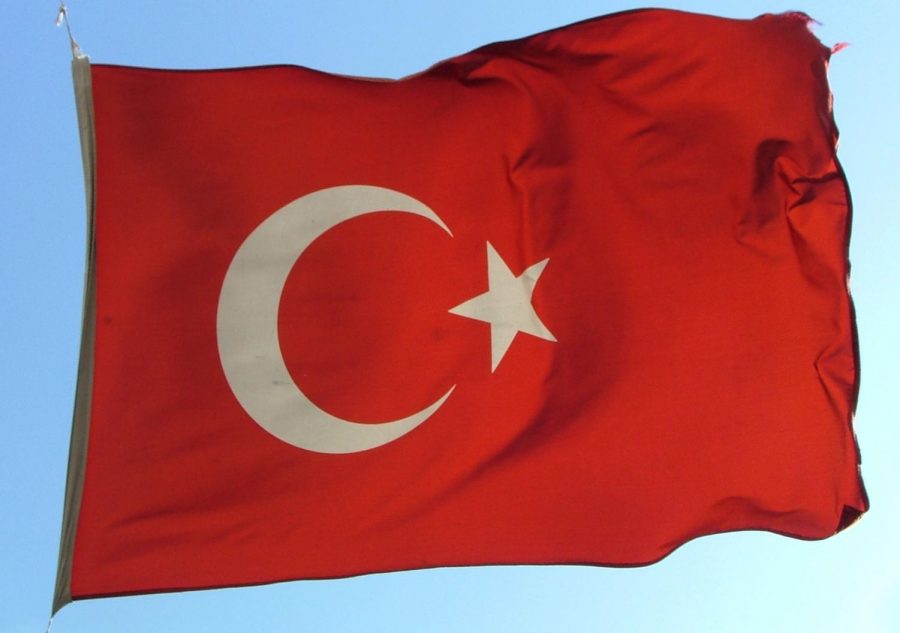Growing political tensions between the U.S. and Turkey
Turkish flag
October 30, 2017
The growing political tensions between the U.S. and Turkey has peaked and incited both countries to cancel their visa operations with each other on Oct. 8.
The relationship between the two North Atlantic Treaty Organization allies started to worsen since July 2016 on the grounds of a failed coup attempt at Ankara and Istanbul in Turkey.
Fethullah Gulen, a cleric originally from Turkey, presently living in Pennsylvania, and his followers known as ‘Gulenists’ are suspected for the move.
Though Turkey demanded the U.S. to deport Gulan, they could not make it as they failed to come up with evidence to prove him guilty.
Two officials working in the U.S. embassy are kept in detention by the Turkish authorities. Metin Topuz, a Turkish national who was working as a translator in the US embassy was arrested on Oct.4, and is indicted of terrorism and accused of having contact with the people suspected of the coup attempt.
In March, another Turkish national Hamza Ulucay, who worked as a translator at the U.S. Consulate in Adana for 36 years was also arrested suspected of belonging to the Kurdistan Worker’s Party.
Turkey is dissatisfied with the support that Kurdish rebels in Syria receive from the Trump’s administration as they think that the Kurds may demand a separate country in the Turkish land.
Turkey and the U.S. had been allies since the beginning of the cold war period and for more than seven decades.
In 2012, former President Barack Obama even named the current president of Turkey Recep Tayyip Erdogan, who was the prime minister then, as one among the top five world leaders he trusted.
In a September Los Angeles Times article, President Trump is quoted during a meeting with Turkish President Recep Tayyip Erdogan that the two countries were “the closest we’ve ever been.”
But by early 2017, Turkey’s alliance with the U.S became the worst in decades and the once Turkish ally to the U.S. began to look more like an enemy than an ally according to The Washington Post Oct. 12 report.
Megan Young, Coordinator of the Community College Initiative Program is also one of the coordinator’s of the U.S. Department of State’s CCI Program at SCC, one of 17 campuses across 11 states to host international exchange students participating in the CCI program for 2016-17.
Young has visited Turkey and it makes her extremely sad that Turkey as a nation has visas in question and going back and forth.
Sevilay Kelek, is a photojournalist from Turkey and is currently studying journalism at Scottsdale Community College.
Kelek believes that it is unfortunate that both of the countries have a fraying relationship. She hopes that the countries will improve their diplomatic policies in order for things to get better as the common people in both of the countries expect it.
Being a journalist, Kelek is also anxious about the media censorship in her country. She advocates for both peace and a free press.
“I believe in a quote by the first president of Turkey Mustafa Kemal Atatürk ‘Peace at home, peace in the world,” Kelek said.



Tayyaba siddiqui • Oct 31, 2017 at 8:25 pm
Got lot of information through this article.before reading this i exactly didnt know the background of this tension between the two countries.wonderful effort Anjitha.keep it up Girl?